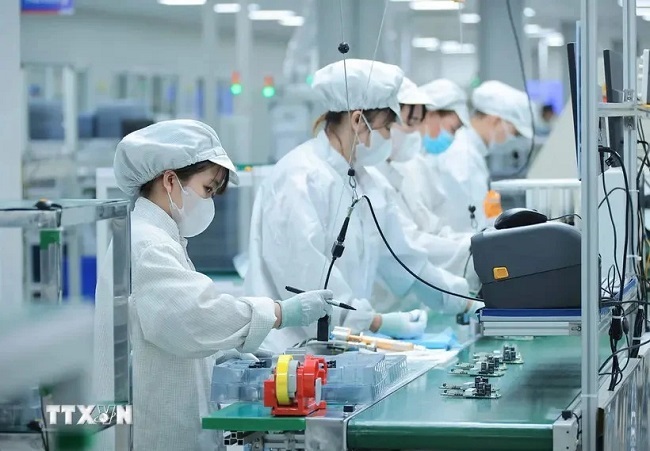
Deputy Prime Minister Le Thanh Long has signed the Prime Minister’s
directive on accelerating workforce training for semiconductor industry and
core digital technology sectors, such as artificial intelligence (AI), cloud
computing, Internet of Things (IoT), big data, and blockchain.
Deputy Prime Minister Le Thanh Long has signed the Prime Minister’s directive on accelerating workforce training for semiconductor industry and core digital technology sectors, such as artificial intelligence (AI), cloud computing, Internet of Things (IoT), big data, and blockchain.
The directive, sent to ministries, ministry-level and Government agencies, and authorities of provinces and centrally-run cities, aligns with the PM’s strategic vision laid out on September 21, which includes a semiconductor industry development strategy until 2030 with a vision to 2050 and a programme on workforce development for semiconductor industry, also stretching to 2030 with orientations to 2050.
The PM asked the Ministry of Education and Training to take immediate action by building and issuing standardised curricula for the semiconductor sector within the first quarter next year; and reviewing and proposing adjustments and supplements to mechanisms and policies on tuition fee waiver and reduction, and scholarships for those pursuing studies in these fields, with the deadline set for the fourth quarter of next year.
It was required to submit quality workforce training schemes for approval, build centres to nurture talents in the 4.0 technology field, and facilitate international cooperation in training and the exchange of experts and lecturers at tertiary establishments.
Universities nationwide were urged to consider building schools, faculties or departments dedicated to semiconductor and core digital technologies by the end of this quarter.
Authorities of provinces and centrally-run cities were tasked with drafting specific plans and roadmaps for workforce development through 2030, tailored to their conditions. They must ensure that resources are pooled effectively, funding is allocated appropriately, and a conducive environment for technology transfer between training establishments and enteprises is fostered.
Other specific tasks were also assigned to relevant ministries to ensure smooth implementation./.

 Previous page
Previous page Back to top
Back to top







